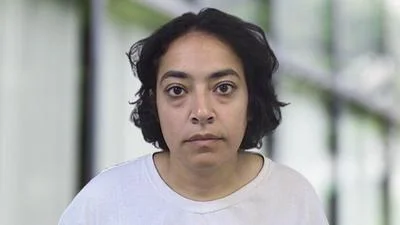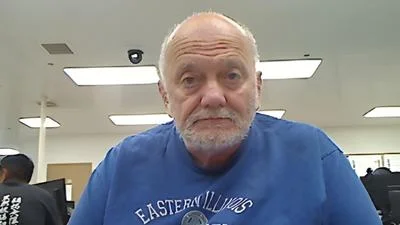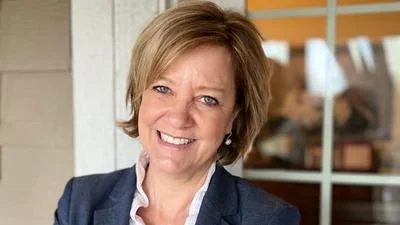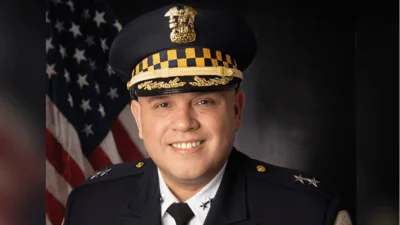Curtis J. Tarver II, State House of Representatives 25th District. | https://www.ilga.gov/house/Rep.asp?GA=103&MemberID=3145
Curtis J. Tarver II, State House of Representatives 25th District. | https://www.ilga.gov/house/Rep.asp?GA=103&MemberID=3145
According to the Illinois General Assembly site, the legislature summarized the bill's official text as follows: "Amends the State Finance Act. Modifies the allocation of moneys from the Cannabis Regulation Fund. Provides that, of the 8% of funds transferred to the Local Government Distributive Fund, 2% shall be used to fund law enforcement training programs that include (i) the use of de-escalation techniques to prevent or reduce the need for force whenever safe and feasible, (ii) specific training on officer safety techniques including cover, concealment, and time, and (iii) training focused on high risk traffic stops; 2% shall be used for the purchase of body cameras; 2% shall be for law enforcement to use at their discretion; 1% shall be allocated to counties for costs associated with pretrial services; and 1% shall be allocated to counties for costs associated with juvenile expungements."
The following is our breakdown, based on the actual bill text, and may include interpretation to clarify its provisions.
In essence, this bill amends the State Finance Act to modify the allocation of funds from the Cannabis Regulation Fund. It stipulates that 8% of these funds will be transferred to the Local Government Distributive Fund, where specific allocations include 2% for law enforcement training programs emphasizing de-escalation, officer safety techniques, and high-risk traffic stop training; 2% for the purchase of body cameras; 2% for discretionary law enforcement use; 1% to counties for pretrial services costs; and 1% to counties for juvenile expungement costs. These changes aim to address specific law enforcement and community needs arising from cannabis regulation and use.
Curtis J. Tarver, II has proposed another four bills since the beginning of the 104th session.
Tarver graduated from Iowa State University in 2003 with a BS and again in 2006 from University of Iowa College of Law with a JD.
Curtis J. Tarver Jr. is currently serving in the Illinois State House, representing the state's 25th House District. He replaced previous state representative Barbara Flynn Currie in 2019.
Bills in Illinois follow a multi-step legislative process, beginning with introduction in either the House or Senate, followed by committee review, floor debates, and votes in both chambers before reaching the governor for approval or veto. The General Assembly operates on a biennial schedule, and while typically thousands of bills are introduced each session, only a fraction successfully pass through the process to become law.
You can read more about bills and other measures here.
| Bill Number | Date Introduced | Short Description |
|---|---|---|
| HB1772 | 01/27/2025 | Amends the State Finance Act. Modifies the allocation of moneys from the Cannabis Regulation Fund. Provides that, of the 8% of funds transferred to the Local Government Distributive Fund, 2% shall be used to fund law enforcement training programs that include (i) the use of de-escalation techniques to prevent or reduce the need for force whenever safe and feasible, (ii) specific training on officer safety techniques including cover, concealment, and time, and (iii) training focused on high risk traffic stops; 2% shall be used for the purchase of body cameras; 2% shall be for law enforcement to use at their discretion; 1% shall be allocated to counties for costs associated with pretrial services; and 1% shall be allocated to counties for costs associated with juvenile expungements. |
| HB1763 | 01/27/2025 | Amends the Consumer Fraud and Deceptive Business Practices Act. Provides that a social club shall not charge a member who is delinquent or in poor standing with the club for the time the member is not allowed in the club or is unable to access the club's services. Provides that a contract that violates the provision is void and unenforceable. Provides that the provision shall not apply to any contract entered into prior to the effective date of the amendatory Act. Provides that a violation constitutes an unlawful practice within the meaning of the Act. Effective immediately. |
| HB1373 | 01/15/2025 | Amends the Criminal Code of 2012. Provides that upon recovering a firearm that was (i) unlawfully possessed, (ii) used for any unlawful purpose, (iii) recovered from the scene of a crime, (iv) reasonably believed to have been used or associated with the commission of a crime, or (v) acquired by the law enforcement agency as an abandoned, lost, or discarded firearm, a law enforcement agency shall use the best available information, including a firearms trace (deletes when necessary), to determine how and from whom the person gained possession of the firearm and to determine prior ownership of the firearm. Provides that law enforcement shall use the National Tracing Center of the Federal Bureau of Alcohol, Tobacco, Firearms and Explosives' eTrace platform or successor platform in complying with this provision. Provides that law enforcement shall participate in the National Tracing Center of the Federal Bureau of Alcohol, Tobacco, Firearms and Explosives' eTrace platform or successor platform's collective data sharing program for the purpose of sharing firearm trace reports among all law enforcement agencies in this State on a reciprocal basis. Defines "peace officer" for the purpose of the investigation of specified offenses shall include investigators of the Bureau of Alcohol, Tobacco, Firearms and Explosives. Effective immediately. |
| HB1396 | 01/15/2025 | Amends the Illinois Income Tax Act. Provides that provisions concerning a credit for foreign taxes shall be applied without regard to provisions concerning distributions of investment partnership income to nonresident partners. Effective immediately. |
| HB1303 | 01/13/2025 | Creates the Kratom Consumer Protection Act. Provides that no person shall sell, offer for sale, provide, or distribute kratom leaf or a kratom product to a person under 21 years of age, with requirements for online age verification. Provides that no person shall sell, offer for sale, provide, or distribute a kratom product that contains certain chemical compositions. Provides that an individual, business, or other entity shall not produce, sell, or distribute a kratom product that is attractive to children. Provides that no person shall sell, offer for sale, provide, or distribute a kratom product that is adulterated with a dangerous non-kratom substance. Provides that no person shall offer for sale any kratom product that contains synthesized or semi-synthesized kratom alkaloids or kratom constituents. Requires federal compliance for kratom products and processors. Imposes a tax of 5% on the retail sale of kratom products. Requires quarterly returns for the tax. Provides that a person who knowingly files a false or incomplete return is guilty of a Class A misdemeanor. Provides for rulemaking and other powers for the Department of Revenue. Incorporates certain provisions of the Retailers' Occupation Tax Act and the Uniform Penalty and Interest Act. Provides that any person who sells a kratom product in violation of this Act shall be subject to a civil penalty up to $5,000 for the first violation, and up to $10,000 for a second violation. Provides that, for a third violation and each subsequent violation, the person shall be fined a minimum of $10,000, up to a maximum of $20,000, and shall be prohibited from selling kratom products in this State for 3 years. Defines terms. Limits home rule powers. Repeals the Kratom Control Act. |





 Alerts Sign-up
Alerts Sign-up